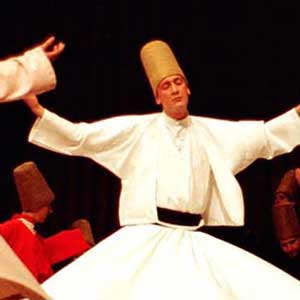Humanism came to Paris in July 2005. The occasion was the celebration of the centenary of church and state separation in France. This moment of rejoicing at a hundred years of secularism was marked by several events: a day for the World Union of Freethinkers, a Congress developed jointly by the Libre Pensée Francaise and the International Humanist and Ethical Union (IHEU) and a General Assembly of IHEU. Seminars and conferences were held in fascinating venues all across Paris. The world Union of Freethinkers inhabited the Conseil Economique et Social - an imposing government building resounding with the glory of the state. The corridors of international power at the UNESCO headquarters, where the main congress took place, are landscaped with huge African sculptures, sinuous, imposing and inspiring, a powerful reminder of the struggle to establish humanism in Africa. We also met in a large amphitheatre in the Sorbonne, all venerable statues and wooden pews of bum-numbing hardness. The final venue, Bourse de Travail, was the place of a workers' takeover during the uprising in 1944.
It was fascinating to learn of the particular problems faced by humanists and freethinkers from around the world at this truly international gathering. Robert Boston from the US spoke passionately of American fears over the separation of church and state under the most aggressively religious executive the country has ever known. Under Bush large sums of money are being given to faith groups to undertake welfare, the teaching of Darwin's theory of evolution is under threat, and sex education insists on abstinence.
Enyeribe Onuoha from Nigeria told how he resigned from being a Catholic priest, what friction that had caused with his religious family, and how convinced he was of his new views. He talked about the imposing position of Islam and Christianity and the problem of witchcraft. Deo Ssekitooleko from Uganda was able to give me an encouraging picture of how he and others are setting up a school and humanist centre. Vikas Gora, one of a group of young humanists attending a separate conference later, whose family at the Atheist Centre in India I know well, had been working with the post-tsunami reconstruction in India. Gopi Upreti from Nepal filled in the picture of a country torn between a Hindu theocracy and a Maoist insurgency. Azam Kamguin, originally from Iran, who had been tortured and imprisoned for her defence of women's rights and opposition to the repressive Muslim state, made it clear that there is great opposition to the Iranian Muslim state, especially from young people.
In many countries hunger, disease and corruption are far greater threats to civil life than church and state issues. There were many other subjects in the workshops - bioethics (IHEU is forging ahead with a special Bioethics Centre in New York), science and religion, women's rights, euthanasia. The organisers puzzlingly neglected to schedule a workshop on gay and lesbian rights - with life imprisonment threatening gays in Nigeria and Uganda, and two teenage boys hung for homosexual activity in Iran, this is obviously far more than just a lifestyle issue.
There was an unforgettable moment in the week, when the whole question of secularism versus religious fanaticism became horribly real.
News came through, while we were sitting observed by a statue of Dante, of an inferno in London. It became clear that bombs had gone off and the British moved to a café where they urgently tried to phone to check that relatives and friends were OK. The difficulty of phoning, the anxiety, accompanied by coffee or beer, is something I shall never forget. And in an international conference, suddenly nationalistic feelings became important. Though it has to be said, the spontaneous condolences offered by French citizens in the Metro did demonstrate to us that the revolutionary principal of fraternité extends beyond the Hexagon.
The other great French principal of laïcité was staunchly debated over the week. There emerged during the conference a difference between those who wanted complete separation of church and state and those who wanted a neutral relationship, because in a country where there was church tax they obtained state money for an equivalent life stance (i.e. humanism) to that of the churches. There were strong feelings between Gallic rhetoric and Anglo-Saxon and Nordic pragmatism. There was difficulty agreeing on motions - but I personally have little belief in the value of ideological motions.
Humanists tend to overdose on words. I felt the need for some more quiet reflective moments -- even some artistic activity. But I cannot doubt the fullness of the range of experiences that week and the importance of celebrating a secular anniversary that is linked to perhaps the most precious of French principles: liberté.
French lessons
Jim Herrick reports from the world's largest gathering of freethinkers

